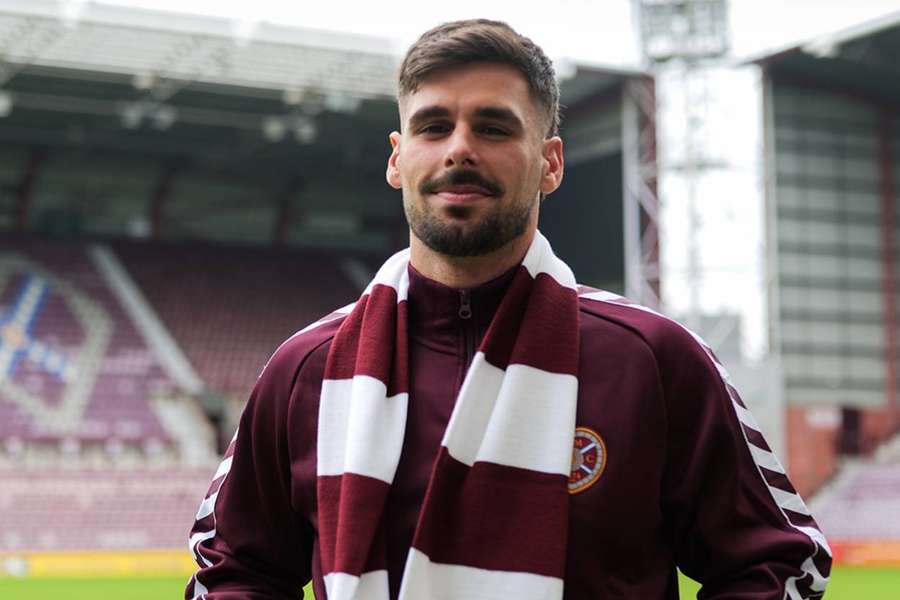Follow Hearts on Flashscore
This is one of those stories that should be told in every club by youth coaches to youngsters who dream of professional football. The path isn't always easy and it's often not the most obvious one that leads to the top. All those phrases make sense when you have an example like this in front of you. You really have to be resilient when the dream seems far away and have the humility to realise that difficulties also make you go further.
This is the story of Claudio Braga. In the blink of an eye, the Portuguese striker's career took a huge turn for the better. From the Portuguese Championship to Norway's third division, from promotion to the second league to the historic Hearts in Scotland's top flight - all this in just over three years. What once seemed unattainable is now a reality and an open door to dream even bigger.
This is the story of a young Portuguese man who shows us, with his journey, that in football, "everything can change very quickly".
In Braga's case, football took a giant turn.
An inspiring story, told in the first person, in an exclusive interview with Flashscore.
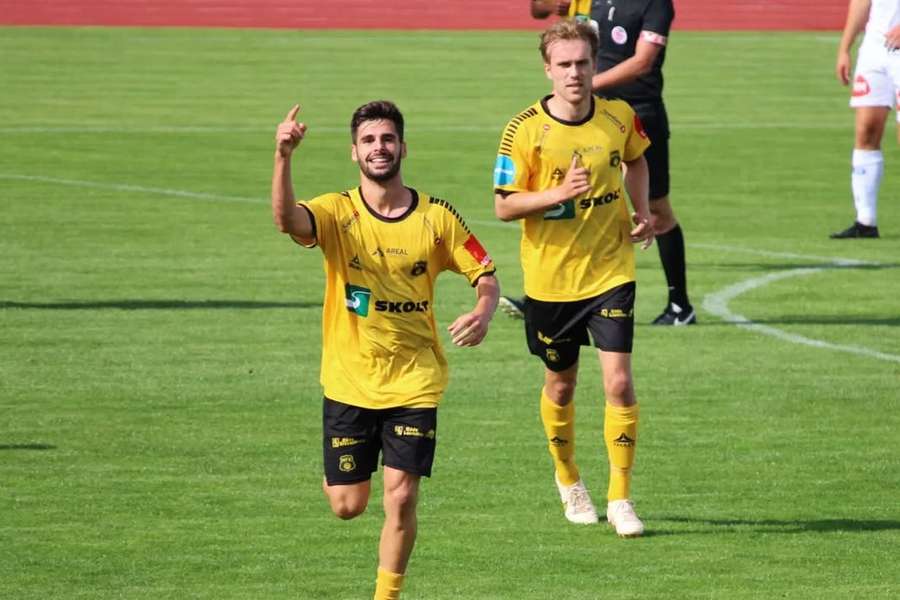
"I left Portugal to try out for a third division club in Norway"
Flashscore's Rodrigo Coimbra: A lot has happened in the last three years: Cláudio left Portugal, where he was playing in the Portuguese Championship, went to the third division in Norway and is now in the Scottish Premier League. For you, has all this happened really quickly, or does it feel like more years have passed than it really has?
Claudio Braga: "Now that I'm here, it's easy to look back and feel that everything happened quickly and that everything went incredibly well. But in reality, it was three and a half years in Norway, with a start full of doubts and difficult decisions.
"At first, I thought that leaving the Portuguese league, which has a lot of quality, to play in the Norwegian third division might be a mistake. Those who don't know it think it's a low-profile league with little competitiveness, and that weighed on me.
"Even so, I took the risk because I felt it was the best decision for my career. Fortunately, it turned out well. It wasn't an easy path, there were ups and downs, but I thank God I made that decision and that I'm where I am today."
I believe that your story could end up inspiring many players who are now in the Portuguese Championship or League 3. When you decided to go to Norway's third division, did you feel like you were taking a step backwards?
"It's important to say that I didn't go to Norway for the money or anything like that. At the time, I felt I was having a good season, but there were few opportunities. There was interest from some clubs, but nothing materialised, and in Portugal, there was little investment - even today, I think it's insufficient for the quality we have.
"It took my managers and my family about six months to convince me. It was a difficult decision, but I realised that the worst that could happen was that I wouldn't like it, would come back and find another club in the Portuguese league.
"What attracted me was the challenge: I knew that football was different there, more 'robotised', like in Germany, with a big focus on passing and receiving. Maybe it's not such a beautiful game, but it's a much more effective game. Tactically, I had to be very good, and that forced me to evolve.
"What's more, my style of play stood out because it was different from what I was used to there. That helped me to grow, to be more valued and to gain confidence, something I honestly didn't feel as much in Portugal."
It's not very common to see players leaving Portugal for Nordic countries like Norway. We've even seen the opposite: players from Denmark, Norway and Sweden coming here. When you received this offer, what was your first reaction?
"To be honest, my first reaction was: 'Forget it. It's totally out of the question. There's no point in you bringing it up again'.
"I immediately thought there was no point in going to Norway's third league. I even said to my managers: 'What are you talking about? Third division in Norway? Find me a club in the third league here in Portugal instead'.
"But they were persistent, and I'm glad they were. They explained to me that the league had quality, that the conditions were very good and that my profile could make a difference there. Little by little, I started to believe in the idea, I covered my eyes and took a chance. But I have to be honest I never believed it would work out.
"Even so, I went for tests without knowing if I was going to stay, how much I was going to get paid or whether I would even have a guaranteed home and food.
"In other words, I went to try out for a third division club in Norway, and it ended up working out: we were champions in our first year, something that wasn't even in the club's plans. Looking back, it was a huge leap and one of the best decisions I ever made."
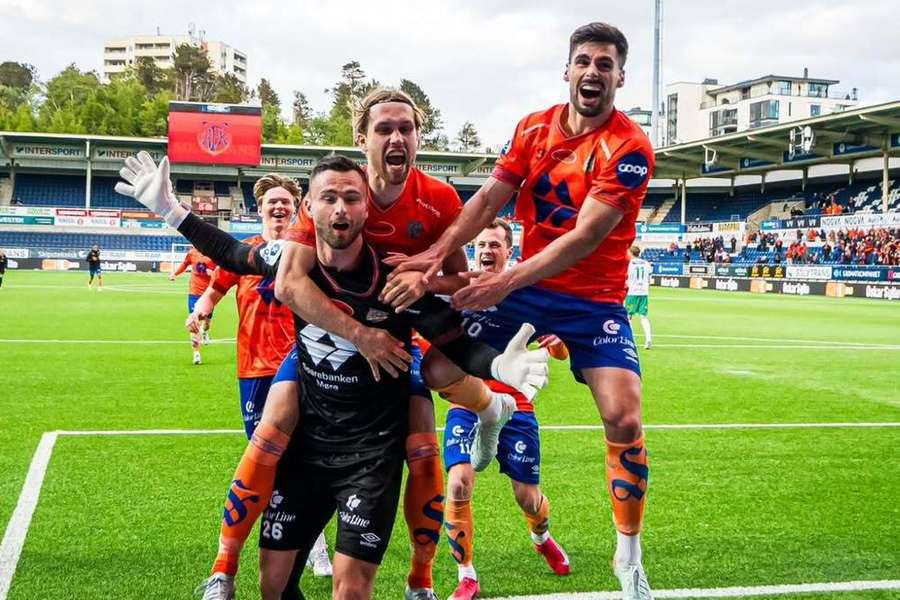
So you didn't go to Norway for the money, but for the sporting project you were presented with?
"Exactly. At the beginning, as I said, the conditions were uncertain: I didn't know how much I was going to earn or if I was going to have a house. But I went with the ambition to stand out and grow.
"In the first year, I was top scorer, we went up to the second league, and I ended up signing for Aalesund, a first division club that was in the second league. Everything happened step by step, and the truth is that everything my managers and my father had told me came true."
You've already said that the experience in Norway made you develop a lot as a player. Looking back, what struck you most about those years and how did the league help you grow?
"It was an incredible experience. Norway was where I first felt the recognition of being a footballer: people asking for photos, autographs, children looking up to me as an example... That had never happened to me in Portugal. It was unthinkable in the Portuguese league. I remember my first autograph perfectly, I was thrilled.
"The two clubs I played for, Moss and Aalesund, were fundamental to my development. Moss was smaller, more 'family-oriented', and I hold it close to my heart because I felt such affection there.
"Aalesund, on the other hand, was a much more professional club, with excellent conditions and a first division structure. I was treated very well at both clubs, and that helped me grow not only as a player but also as a person.
"Today I still follow the games of both clubs and, as soon as I get the chance, I want to go back and visit them. They were essential stages on my path, and I'll never forget that.
The Nordic phenomenon in Portugal: "They do the simple things perfectly"
Given your time in Norway, do you now realise why so many Portuguese clubs, especially the big ones, have been investing more and more in the Nordic market? What's special about the players there?
"There's a lot of quality. At first, I felt I had more individual technique - dribbling, one-on-one - but I soon realised that they are very strong in other aspects. Reception, passing, quick decision-making... they're incredible at that.
"The biggest difference is that they do the simple things perfectly. When I arrived, football for me was about getting your 'knickers in a twist', putting on a show, and making pretty videos for the highlights. There, I was taught that the important thing is to be effective. My two coaches were very insistent on this: I had to be more predictable for my team and unpredictable for the opposition.
"What's more, the tactical discipline is impressive. Even in the third division, we watched videos every day, analysed training sessions and studied the opposition before each game. The coach would say 'do this' and the players would follow it to the letter, without question. That mentality, combined with the intensity with which they train and play, made me develop immensely.
The 'unreal' leap to Scotland
Claudio still starts the year playing in Norway, but the possibility arises of going to Scotland, to the first division. How did the move come about, and how did you approach the opportunity?
"It was all very quick and at the same time hard to believe. Looking back, it's shocking: a few years ago I was in the Portuguese Championship and suddenly I had the chance to play in Scotland's top league.
"I learnt of Hearts' interest in December and from then on I was anxious for months because I was so excited about the project. I really wanted to make the leap, and I felt I was ready.
"I'd already had two good consecutive seasons in Norway, so I wanted to play in a top league at the very least. It took six months of intense negotiations between the clubs, but I was always motivated. I spoke to the coach, watched Hearts games, studied the team... and when I realised there was real interest, I didn't think twice. It was a huge step in my career.
What about adapting to Scotland? You made an impact straight away, you were voted player of the month and you helped the team with goals and assists.
"I confess that at first I thought: 'Here I'm going to have to run a lot and give everything, because these guys are very good'. The squad has 30 players and they're all very high calibre.
In training, the intensity is enormous. I arrived as a creative player, and I quickly realised that I had to be a fierce player. I gradually gained confidence, scored goals, made assists and felt I could be at the same level. Today, I feel adapted and valued, but I still want to learn every day."
And did you ask to wear the number 10 shirt at Hearts? Did you feel any weight taking on that number at a new club?
"Yes, I was the one who asked for the number 10 shirt, just to feel that responsibility. I know it means a lot to the fans, and I wanted to show that I was ready to take on that role. Of course, there's pressure, but for me it's good pressure: it forces me to give my all, to be decisive and to help the team. I feel I'm still not at my maximum level of confidence, but every training session and every game brings me closer to that. The number 10 shirt has a lot of symbolism and I hope to honour it in the best way."
Scottish football isn't widely followed in Portugal. How would you describe the level of the league and what surprised you the most?
"The main difference is the intensity. It's out of the ordinary! Here the game doesn't stop, it's always'attack, attack'. It's like the Premier League in that sense: there's always action, always speed, and that forces you to be physically and mentally prepared.
"In Norway, there was already a lot of intensity, but in Scotland, it's another level. Even though the substitutions are made on the run, they can't even do that slowly when they're winning. Then the goalkeeper doesn't hold the ball up to buy time, he puts it into play straight away. The centre-backs are also very aggressive... For me, this dynamic was a shock at first, but it's also made me develop a lot."
"Ronaldo, if you see this..."
It's clear that you've already formed a special bond with the Hearts fans, and your Cristiano Ronaldo-style celebrations also help to create that unique connection. How do you feel about this relationship with the fans?
"For me, the connection with the fans is fundamental, both for the players and the team. I realised this even more in Norway, where I was very much appreciated, and I've brought that mentality here. The support of the fans gives you confidence, gives you energy, and, even when you make a mistake, you feel they're with you.
"As for celebrating, at first it was just to represent Portugal. I did it once and immediately realised the impact: the whole stadium shouted at me and I thought: 'This is really cool, I have to keep going'.
"It's almost become a personal brand. Of course, it's not mine, it's Ronaldo's, and I respect that - Ronaldo if you see this, I want you to know it's your image (laughs) - but for me it's also a way of creating an identity with the fans.
"Even the number 10 shirt, I think, helps a little to create that brand I'm talking about. That relationship makes all the difference. It gives me more motivation and makes me feel part of the club's history."
And have you seen jerseys with your name and your number 10 on them in the stands? Have you also noticed Portuguese flags at matches?
"I have, and I confess that it still shocks me. There are lots of fans wearing my shirt, which makes me proud. The stadiums are always full, there's a waiting list for tickets, and the atmosphere is incredible.
"I feel I've created that bond by always giving everything on the pitch. My father always told me: 'You can miss passes, you can miss goals, but you can never fail to deliver'.
"And I take that very seriously. I think the fans understand and value that effort, even if you make a mistake, if you give 100%, they're with you. I think that's the basis of my success. Of course, goals help strengthen that relationship, but the essential thing is to show total dedication. And that has made a difference since I arrived."
Tynecastle's atmosphere 'is not normal'
Claudio, you've reached a great goal: to play in the first division, at a historic and competitive club. Now that you've realised that dream, what motivates you to keep going? What are your next steps?
"I have to confess that I was a little afraid that once I got here, I'd lose my motivation. I always dreamed of playing in a top league, at a big club, and achieving that goal was special. And I feel like I've realised that dream. But I quickly realised that this is just the beginning. Now I want more. One of my big goals is to play in European competitions. Hearts often play in the Europa League, and I hope to help us get back there.
"In the medium term, I'm also dreaming of the Champions League - it's impossible not to when you're playing at this level. And, of course, the biggest goal of all would be to represent the national team. I used to think it was impossible, but now I can see a glimmer of light. I know we have a team full of talent, perhaps the strongest ever, but I've also learnt that football changes very quickly. So I work every day with that ambition in mind."
Looking back, it's incredible to think that, in January 2022, you were playing for Vila Mea against Paredes in the Portuguese Championship... and now, just over three years later, you're facing Rangers at the mythical Ibrox Stadium. How do you take it all in?
"It's amazing, sometimes I can't believe it. I rarely stop to think about it, but when I do, I get goosebumps. Three years ago I was playing on small pitches, and now I'm going to be in a historic stadium, full of people, with an atmosphere like no other.
"It's exciting to think about, and I can only say that I'm really lucky. I've had the chance to see a few games in the Portuguese league, but I've never seen anything like what I've seen here. In my first game at Tynecastle, at Hearts' stadium, I spent half the game thinking: 'This isn't normal'.
"Of course, it took a lot of hard work, sacrifice and also some luck, because in football, luck counts. But I believe that the harder you work, the closer you get to the right opportunities. All this shows me that it was worth taking a risk back when I left Portugal and that every decision was important to get where I am today."
What's it been like living in Edinburgh? Apart from football, how have you experienced the city, the people and everyday life outside the stadiums?
"It's been an incredible experience. Edinburgh is a beautiful city full of history. The climate is similar to Norway - very cold, some rain - so I was more or less used to it. From the moment I arrived, I was warmly welcomed by everyone: teammates, staff and fans. There's a family atmosphere at the club, and that makes a big difference when you're in a new country. I feel really cherished, and that helps me stay focused on the pitch.
"Lately, I've started to be recognised in the street, which is a strange and rewarding feeling at the same time. I'm still surprised to see grown-up people with beards asking for photos or calling my name: 'Claudio, Claudio' (laughs). And I think: 'Is that for me?'.
"It's nice to feel that affection, but I confess that sometimes it's hard to believe that it's happening to me.
"Some of my mates are already getting on my nerves because they say I'm playing to the fans, and that's why they sing my song. I'm just trying to pull myself together a bit, I'm not going to lie, but I also realise that I always have to do my best.
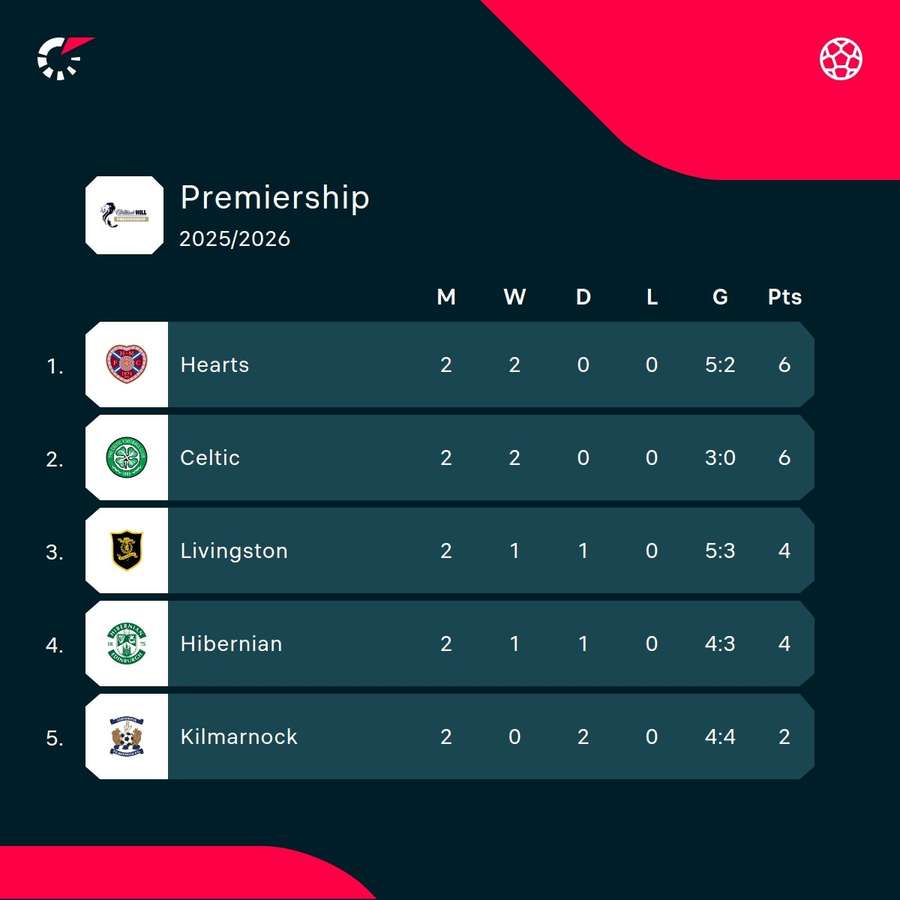
"I didn't care about salaries, I just wanted to play football"
What about your family? How have they followed your rapid rise? I know that football is very present in your life, not least because your brother and sister also play.
"My family has been fundamental. I have a very large, close-knit family: my father, my mother, my brothers, my grandparents, my stepfather, my stepmother, uncles, cousins, friends... They've always supported me, even when I was playing in the Portuguese league and earning minimum wage.
"I remember, for example, my first title at Moss in Norway: my whole family got together at an aunt's house to watch the game and, before it started, they called me on video to encourage me. I was thrilled because I realised that, even from a distance, they were with me.
"It's also special to share this journey with my brothers, who play football. We grew up playing together, always with a ball on our feet, much due to the influence of my father, who always encouraged us. Having that support and connection makes me feel stronger, even when I'm away from home. They've never let me down. I'm very proud of them and I want to believe that they're proud of me too."
Claudio, taking a step back: how did your relationship with football begin?
"It all started at Aguias de Gaia, a neighbourhood club. At the time, it wasn't even federated, we played tournaments and my father was the coach. People from the neighbourhood would get together, we'd train once a week and clean up after almost every tournament. It was there that I gained an even greater love for football.
"One day, my dad told me I was going to play federated football for Candal, and I remember feeling like winning the Champions League. It was my first chance to play as a federated player, and it was a huge thrill. In the first year, we were champions, and after that, we were invited to Boavista.
"The first two years at Boavista were great, but in the third, I hardly played at all. It was a shock for me, because I was coming off the back of some very good seasons, and suddenly I was on the bench.
"My father and stepmother advised me to go back to Candal, to take one step back in order to take two steps forward, and it was the right decision. It wasn't easy. I was a kid and all I could think about was what my mates at school might say because of this change.
|I played a whole season for the seniors, it went well, and I ended up going to Pacos de Ferreira. The experience there was positive, but also difficult: it was far away, I had to take the van every day, catch transport, and be more independent.
"I was released at the end of the season, and all I could think about was going back to Candal. But, incredible as it may seem, the coach recommended me to Rio Ave. I was surprised, because for me, Rio Ave was even bigger than Pacos, and I ended up signing."
And at Rio Ave, how was the transition to senior?
"The first year at Rio Ave was very good. In my second year, I played less, but I moved up to the B team as a senior and started playing as a winger. It was there that I began to understand the game in a different way and gained maturity.
"After that, I played for Valadares and had more difficulties, because it was my first real experience of senior football. Then I went to Fatima, where things started well, but the club got into financial trouble, even before the pandemic ended the championship. It was a huge shock of reality about the less visible side of football. But I was young, I didn't care about salaries...., I just wanted to play."
You ended up going to the Azores...
"Yes, I went to Ideal in the Azores. I'd played against them for Fatima, and the coach liked me and invited me to go. It was another important challenge, because I had to learn to live on my own and adapt to a totally different environment, away from my family.
"Sporting-wise, it was a step forward: I did well in the Portuguese Championship, I felt in great shape, and that gave me visibility. Then came Vila Mea, where I also had a good season. But despite my good performances, I realised that opportunities in Portugal were limited.
"I appeared in the newspaper O Jogo, I was in the XI of the year on the Campeonato das Oportunidades page, and the best I could get for the following year was the Campeonato de Portugal. And that's what led me to take a chance and accept the challenge in Norway."
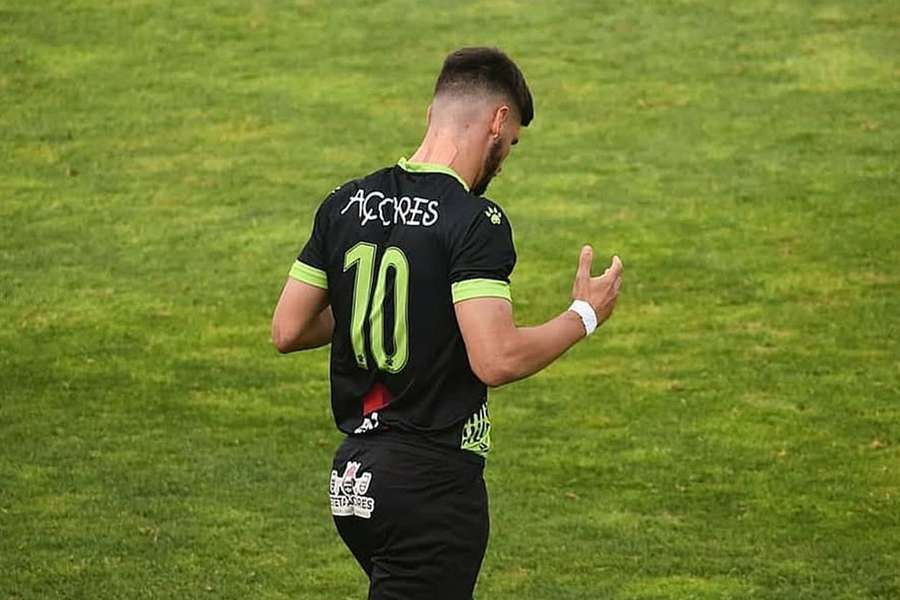
'Never give up'
Claudio, 25, has already been through many stages in his career. What lessons has football taught you so far? Have you received any outstanding advice from coaches, colleagues or family members that has stayed with you to this day?
"I've already spoken about that. The main lesson is simple: football is about efficiency. For a long time, I wanted to 'play pretty', make feints, appear in the highlights. I thought I was playing well just because I did two or three dribbles. But I realised that's not enough.
"I had a very important conversation with my coach at Moss in Norway. We spoke for an hour and he told me: 'You have to be more predictable for your team and more unpredictable for your opponents'. It may sound basic, but it changed the way I played. I started to think better, to decide when to take risks and when to simplify.
"I look back at old videos and realise how wrong I used to think. Before, I thought I'd played a great game by beating one or two players, and I didn't understand why I sometimes went to the bench.
"I even told a coach that I didn't understand that, that I thought I'd played a good game, when he thought otherwise. Today I realise that the game isn't about how many tackles you make, but about the real impact you have on the team. I've learnt to be more intelligent on the pitch and that's made all the difference."
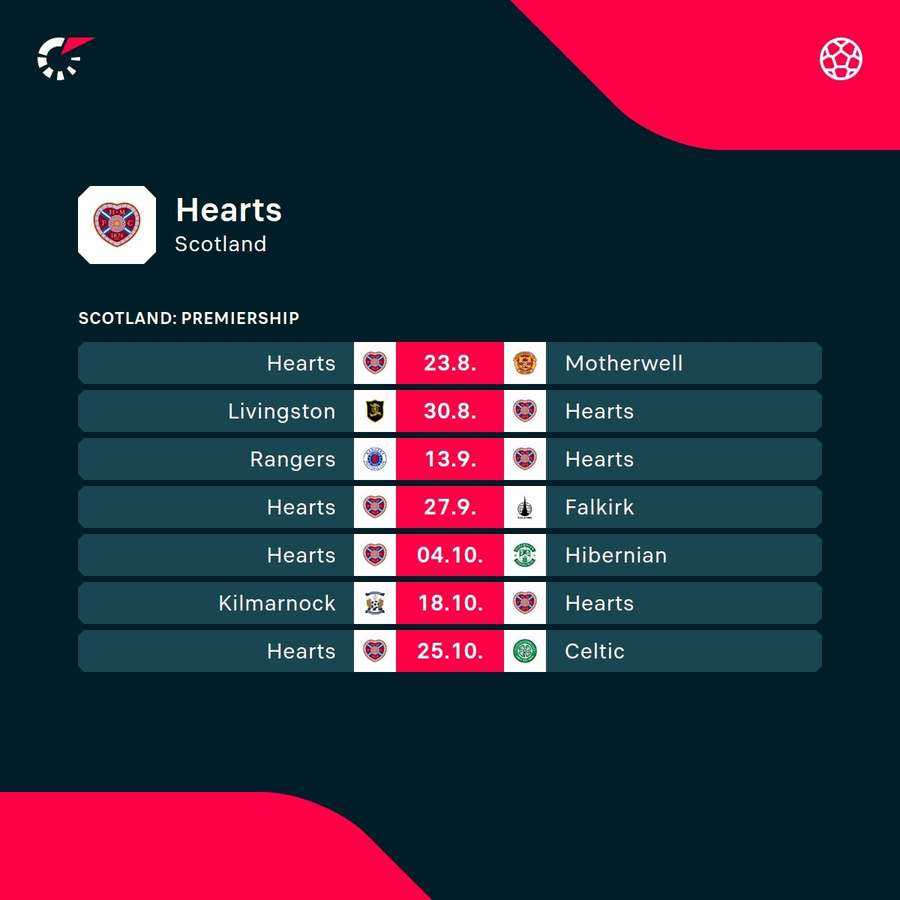
Finally, what message would you give to players who are now in the Portuguese Championship or League 3 and feel that opportunities aren't coming their way?
"Firstly, that phrase that sounds like a cliché, but it's real: never give up. In football, everything can change from one moment to the next. If you decide to put your head down and think 'it's not worth continuing', then nothing is going to happen.
"It's one thing to try and not succeed, that's part of it. It's another thing not to try, and then the answer will always be 'no'.
"I've also learnt that football changes very quickly. Six months ago, for example, it was unthinkable for me to play in the Premier League, and today I'm here in Scotland and I feel that it could be closer. It all depends on continuing to work, giving your all and believing, even when things seem to be at a standstill.
"Another important lesson was learning to deal with mistakes. Before, if I missed a simple pass, I'd get desperate, and I'd cry with anger at myself. I was obsessed with doing everything perfectly, and that only harmed me.
"Now I've realised that making mistakes is part of it: missed? Pass, next move. This has completely changed the way I play and think. Today, even my coach appreciates my quick reaction when I lose the ball, because running straight back to get it is often more appreciated than a beautiful dribble.
"And finally, you need balance. When I was younger, I didn't have that emotional control and suffered in anticipation. Today, I concentrate on always giving 100% in every training session, every game, every moment. That's what makes the difference. My path hasn't been easy, but every risk, every decision and every mistake has helped me get here. And if I made it, anyone can make it, as long as they never stop believing and working."

